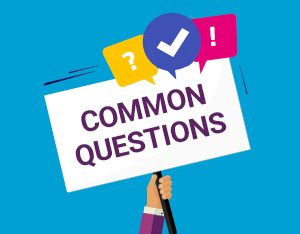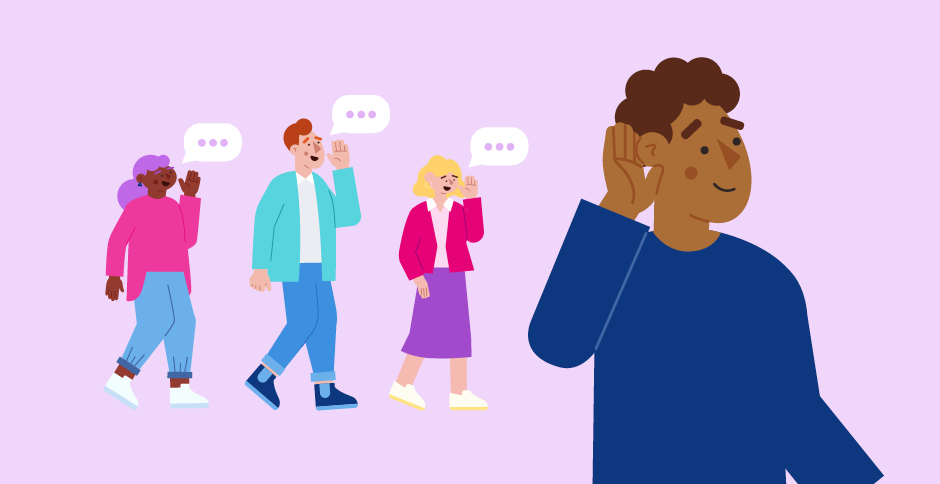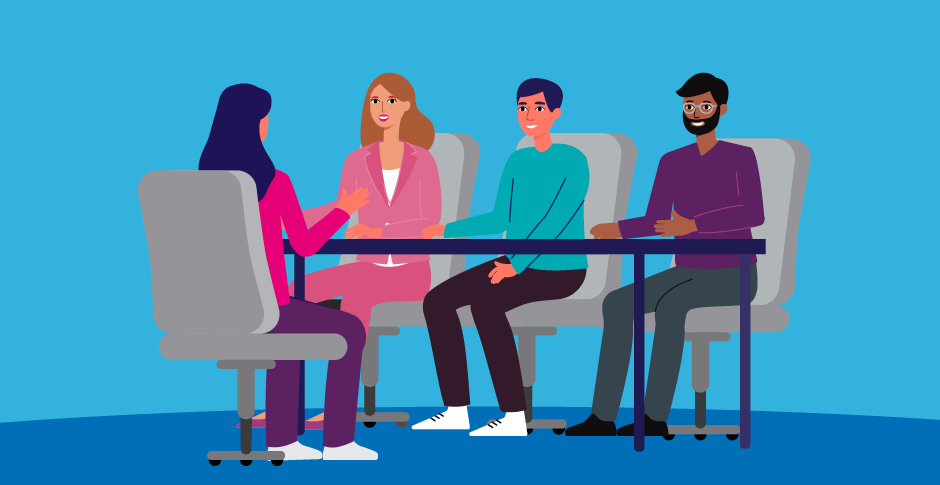Job interviews can be the most daunting part of the job seeking process. But one of the best ways to calm your nerves – and impress your potential employer – is to prepare some stand-out answers to the most common interview questions.
There are three popular questions you’re likely to face in an interview:
Why do interviewers ask these questions? How should you answer them, and what should you avoid saying? We’ve asked career and interview coaches for their advice – and we’ve included example answers to help guide your responses.
Interview question: Tell me about yourself
It’s usually the first question an interviewer will ask – and it’s one of the trickiest to answer because it seems so broad. What do they really want to know about you?
Leah Lambart, career and interview coach at Relaunch Me, says interviewers usually ask this question to break the ice and to gauge your communication skills.
“It’s an opportunity to do your elevator pitch or your two-minute spiel on what you can bring to the role, so I recommend preparing a little script and practising it before an interview, so that it sounds natural and authentic.”
-
How to answer ‘Tell me about yourself’:
Julie Knox, career coach and owner of Blue Sky Career Consulting, recommends dividing your response into four parts.
“The first includes a brief overview of your career that is relevant to the role you’re applying for, including the job titles and responsibilities,” she says. “This is in your resumé, but the interviewer really wants to hear it in your own words.”
The second part, says Knox, should focus on recent achievements, while the third part should highlight your key skills that align with the job you’re applying for.
“Lastly, talk about why you are interested in the role and why you would be a great fit,” says Knox.
Here’s an example of the right way to answer this question:
“I’ve worked in customer service at X agency for the past five years and was recently promoted to manager. I was responsible for maintaining high levels of customer service and led a team of three people. I really enjoy helping them to achieve their goals. This is a skill I’ve really honed in my current role and I’d love to build a successful team within your organisation because I can see that your culture aligns with my own values.”
-
How not to answer ‘Tell me about yourself’:
Hiring managers don’t want to hear about your entire career history during a job interview. You should also avoid discussing concerns with your previous employers or details about your personal life.
“Steer away from talking about things like your family or your hobbies during your answer,” says Knox. “Keep it professional, relevant to the role, and target the skills, experience, and value you can bring.”
Here is an example of the wrong way to this question:
“I graduated from university 15 years ago and I got a job at Y agency, but I didn’t really like my boss, so I moved to Z agency and stayed there for a couple years before I took time off to go backpacking around Europe. I had a few part-time jobs while I was over there and I really love travelling, but I came back about six years ago and have been working at X agency. But, to be honest, I’m a bit over it.”
Interview question: What are your strengths?
Interviewers want to know what you can bring to this role and why you’d be a great fit. But Knox says this question also allows interviewers to gauge if you’ve done your homework about the job.
“They want to check that you've read the position description, that you know what the employer is actually looking for, so you can tailor your answer towards what they need.”
-
How to answer ‘What are your strengths?’:
When describing your strengths, be specific and show how these skills complement the role. Lambart recommends highlighting three key strengths and how you've developed them.
“Also, describe how you've been able to use each strength and how you believe it will help you be successful in the role you're interviewing for,” she says.
Lambart also recommends including a variety of strengths in your response.
“People can go wrong by listing three strengths that are quite similar,” she says. “For example, they might nominate ‘customer service’, ‘relationship management’ and ‘rapport building’ as their three strengths, but they’re all very similar. I suggest choosing strengths that show different aspects of what you can bring to the role.”
Here’s an example of the right way to answer this question:
“I have strong communication skills, which has helped me to build trust and confidence within my current team. It’s also helped me to quickly build rapport with clients and to explain their needs to my team in a clear way. I think this has helped to maximise client outcomes and satisfaction.”
-
How not to answer ‘What are your strengths?’:
Don’t list all of your strengths in life, and avoid being too broad.
“If you list a whole lot of strengths that aren’t relevant to the job, it says to the potential employer that you've not taken the time to understand their needs and the requirements for the job,” says Knox.
Here’s an example of the wrong way to answer this question:
“To be honest, I excel in all aspects of my job. I’m a people person and that’s why I’ve always been popular in every job I’ve ever had. People know that I’m the fun one to have around.”
Interview question: What are your weaknesses?
Nobody’s perfect but owning up to your weaknesses in a job interview can be daunting.
Lambart says interviewers ask about your weaknesses to measure your level of self-awareness and your willingness to develop and improve.
“No one wants to hire someone who thinks they're perfect and thinks there’s nothing that they need to work on,” she says.
-
How to answer ‘What are your weaknesses?’:
Whether your weakness relates to a specific skill or a personality trait, tailor a response that shows you are aware and open to improvement.
“If there’s a gap in your knowledge of a specific software, for example, explain how you can work to overcome it and highlight that you have strong technical skills and you can learn software quickly,” says Lambart.
Here’s an example of the right way to answer this question:
“I’m good at explaining things clearly, but I’m a bit scared of public speaking. I knew this was something I needed to work on, so I joined Toastmasters last year and I’m actually starting to enjoy speaking in front of a group.”
-
How not to answer ‘What are your weaknesses?’:
Knox recommends steering away from cliches, such as ‘I'm a perfectionist’ or ‘I work too hard'.
“They might feel like safe answers, but the interview panel has heard it all before and they want to hear an authentic response that gives them insight into who you are and what you know about yourself,” she says.
Here’s an example of the wrong way to answer this question:
“I don’t think I have any weaknesses, but if I had to try and find one, I guess it’s that I’m a workaholic.”
An interview is an opportunity to show that you’re the right person for the job, so take time to prepare your answers to these common interview questions. The more you practice, the more confident you’ll feel. So, get ready to impress your next employer.



